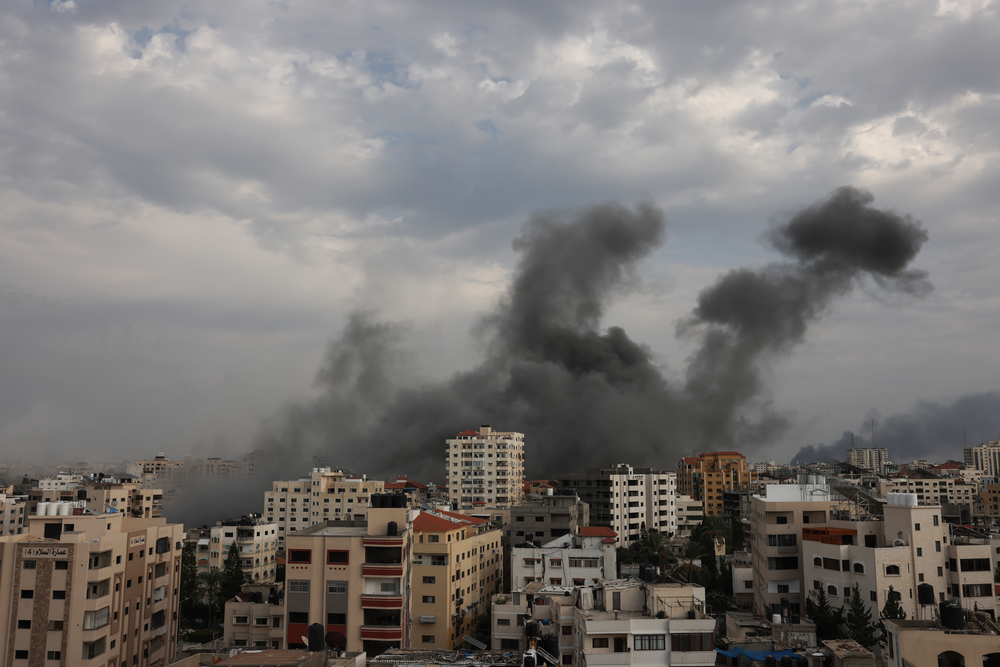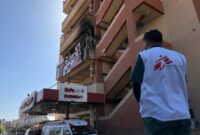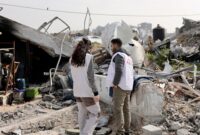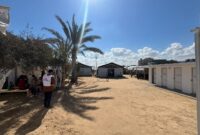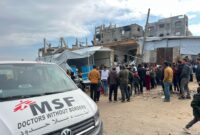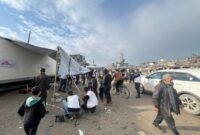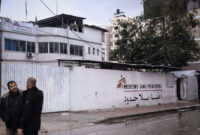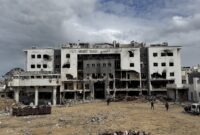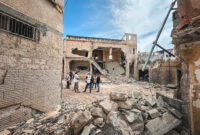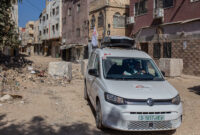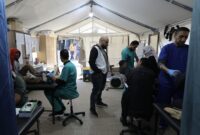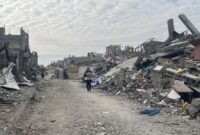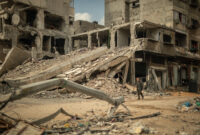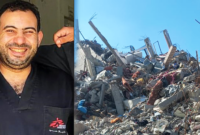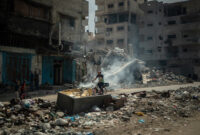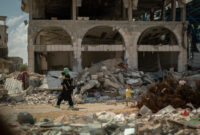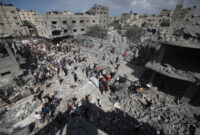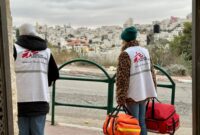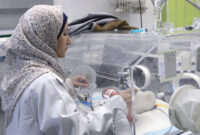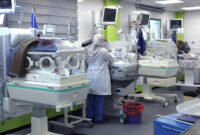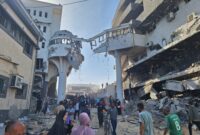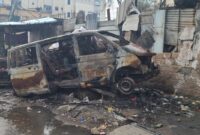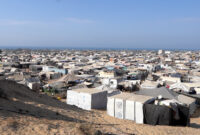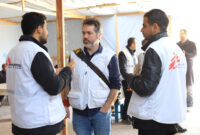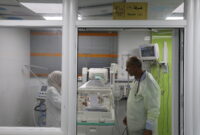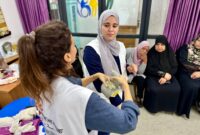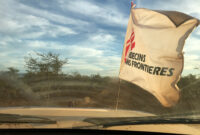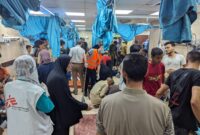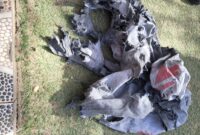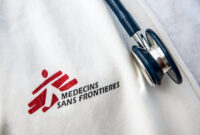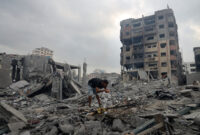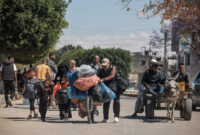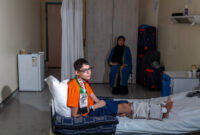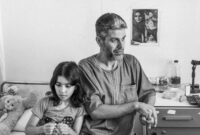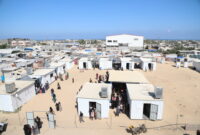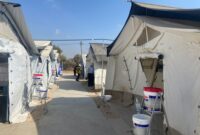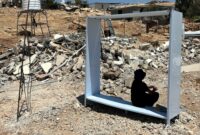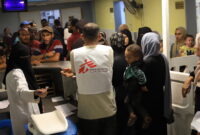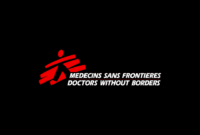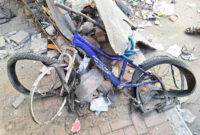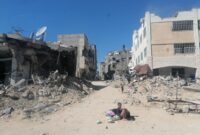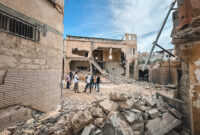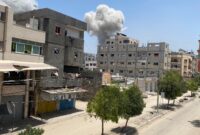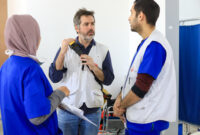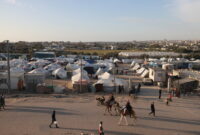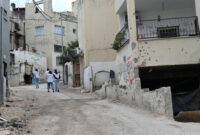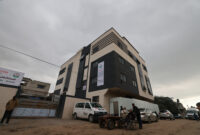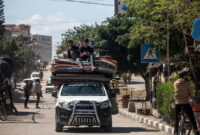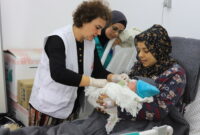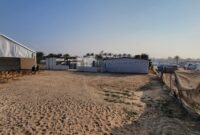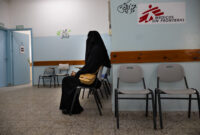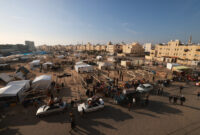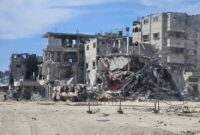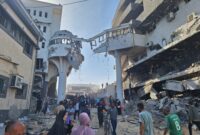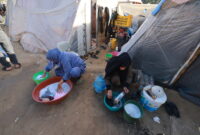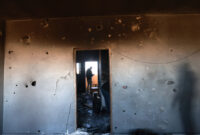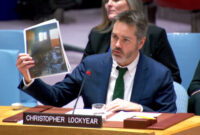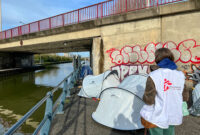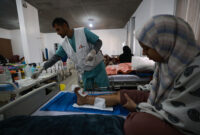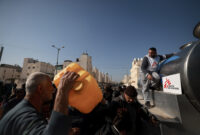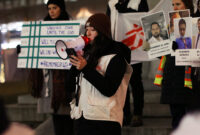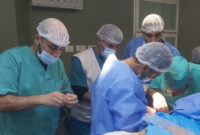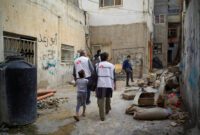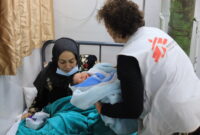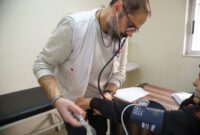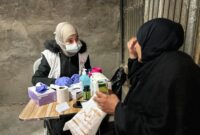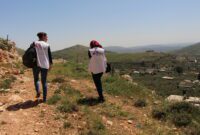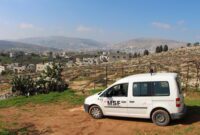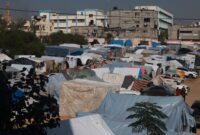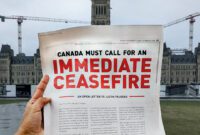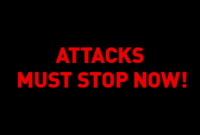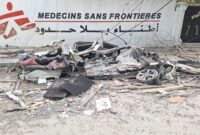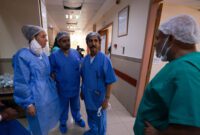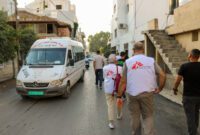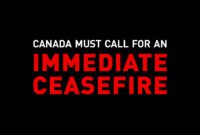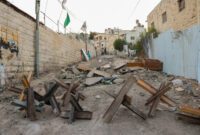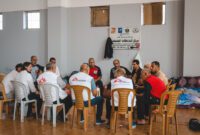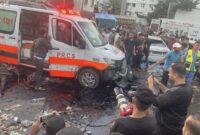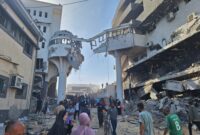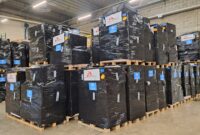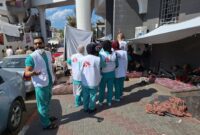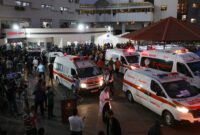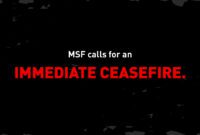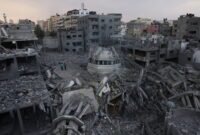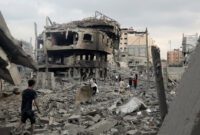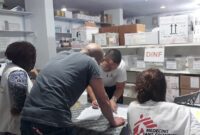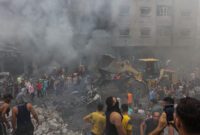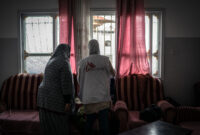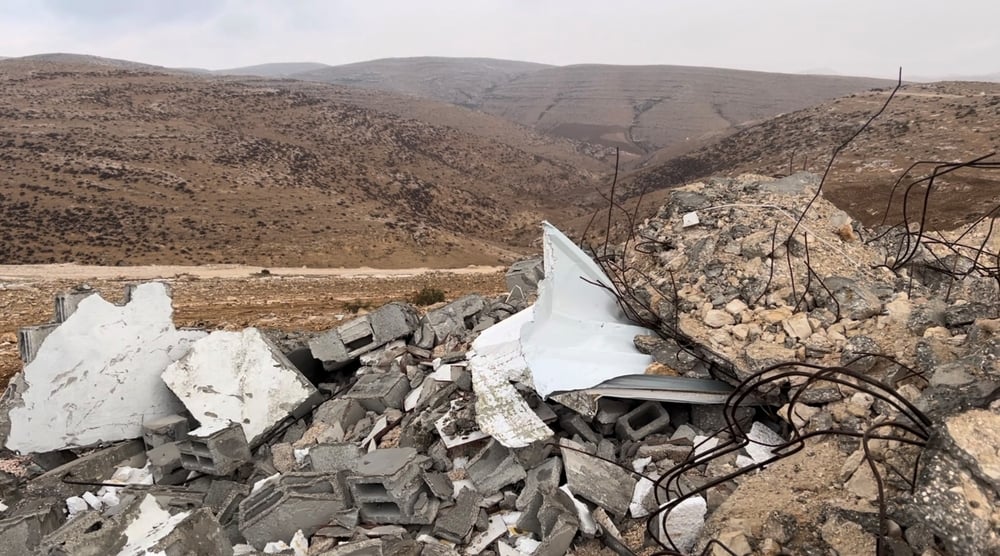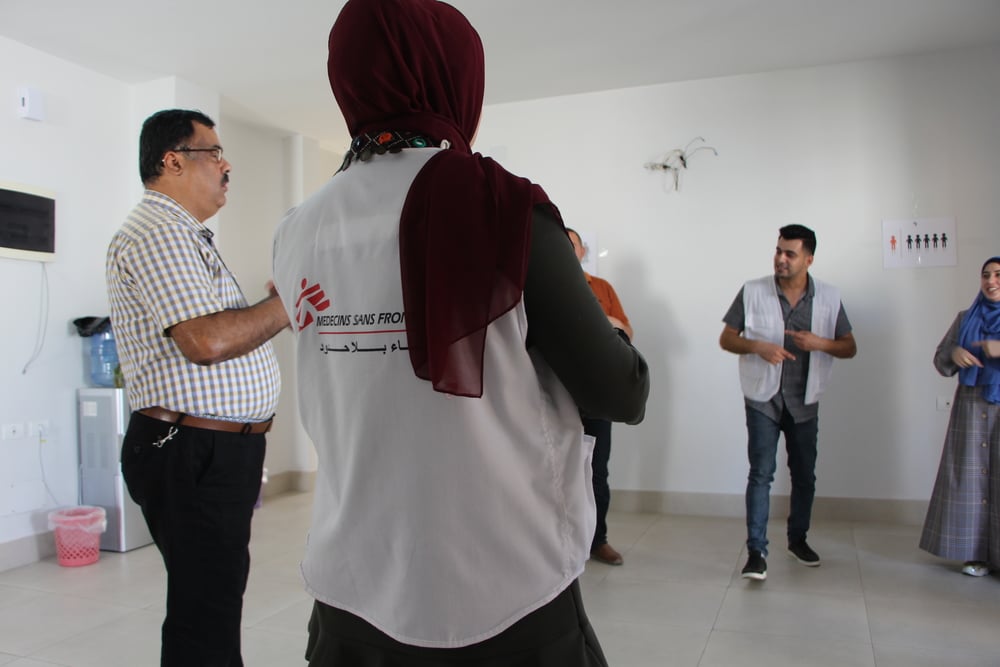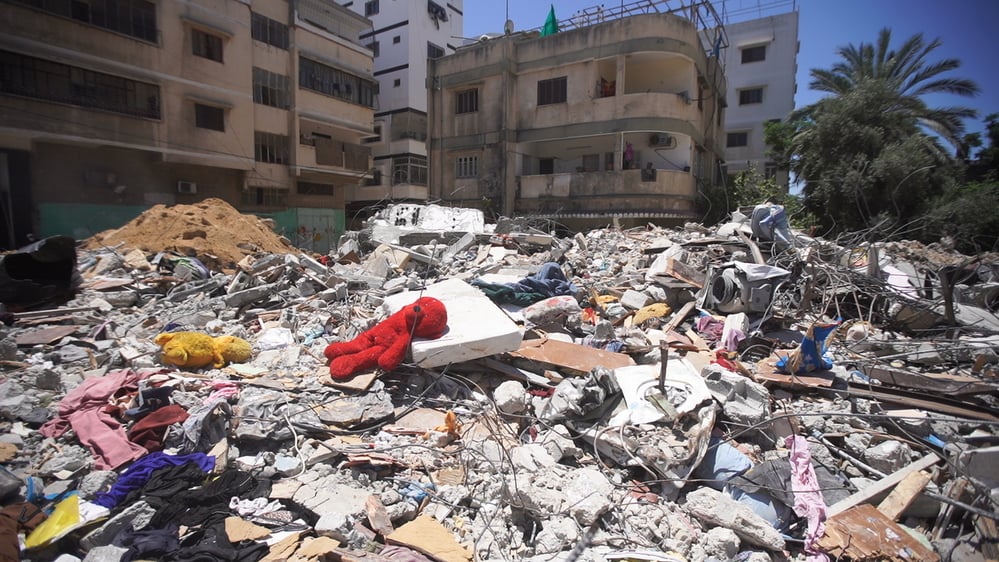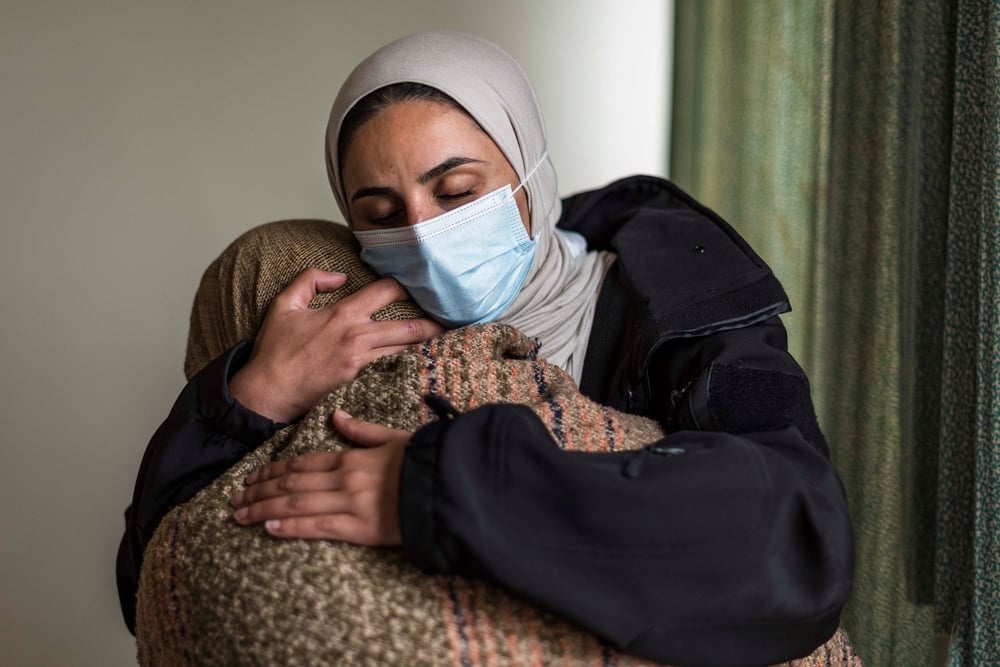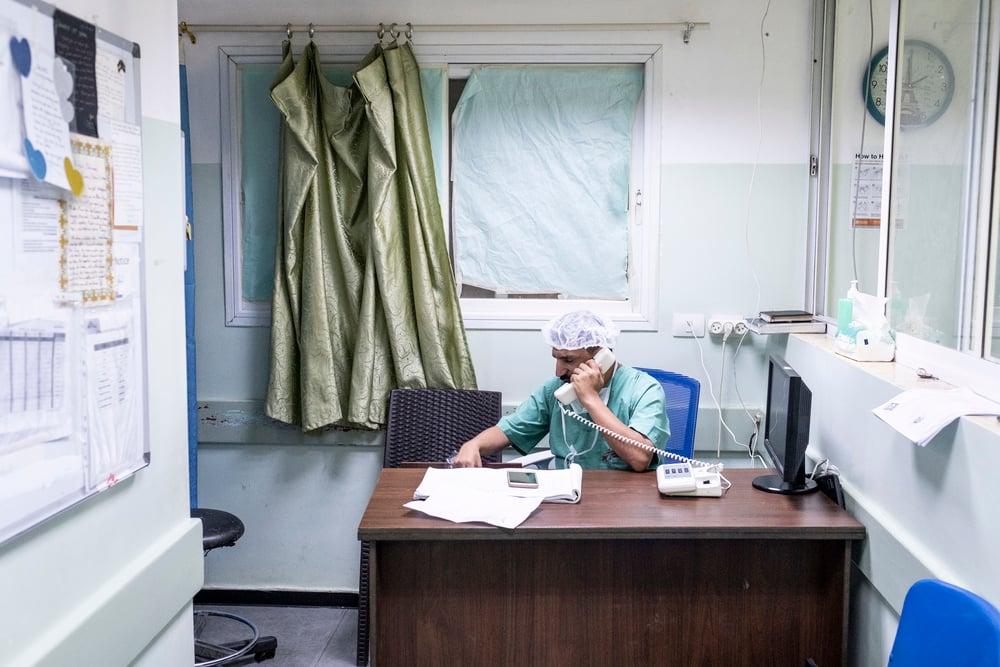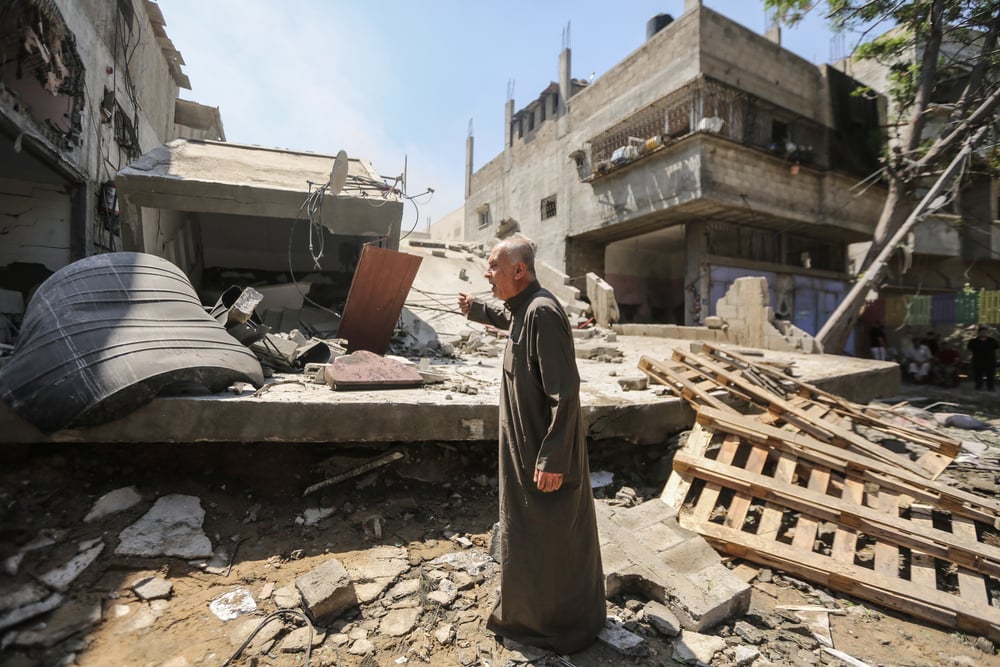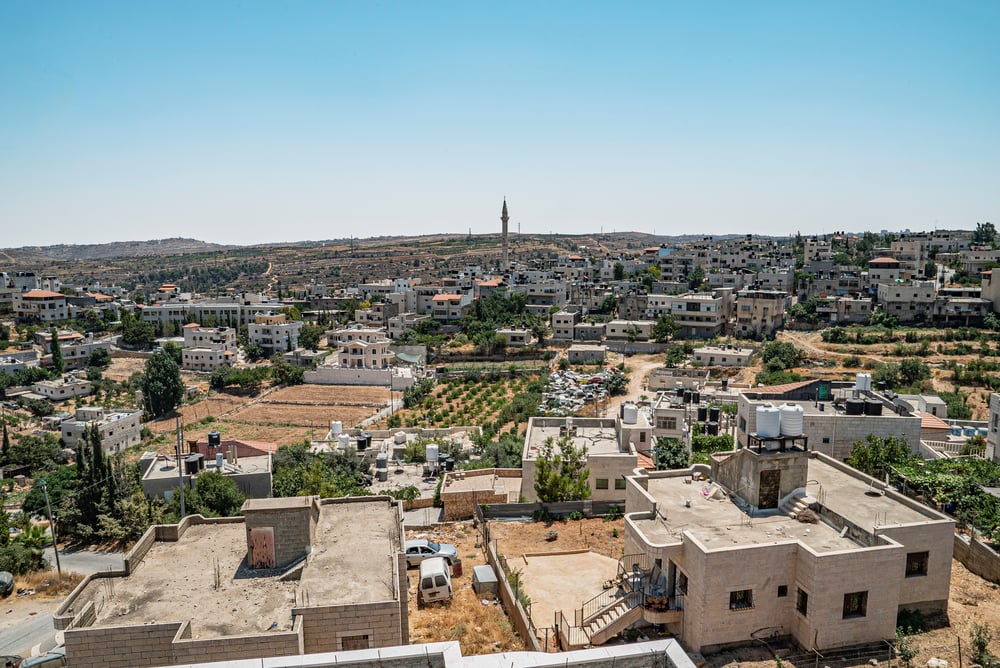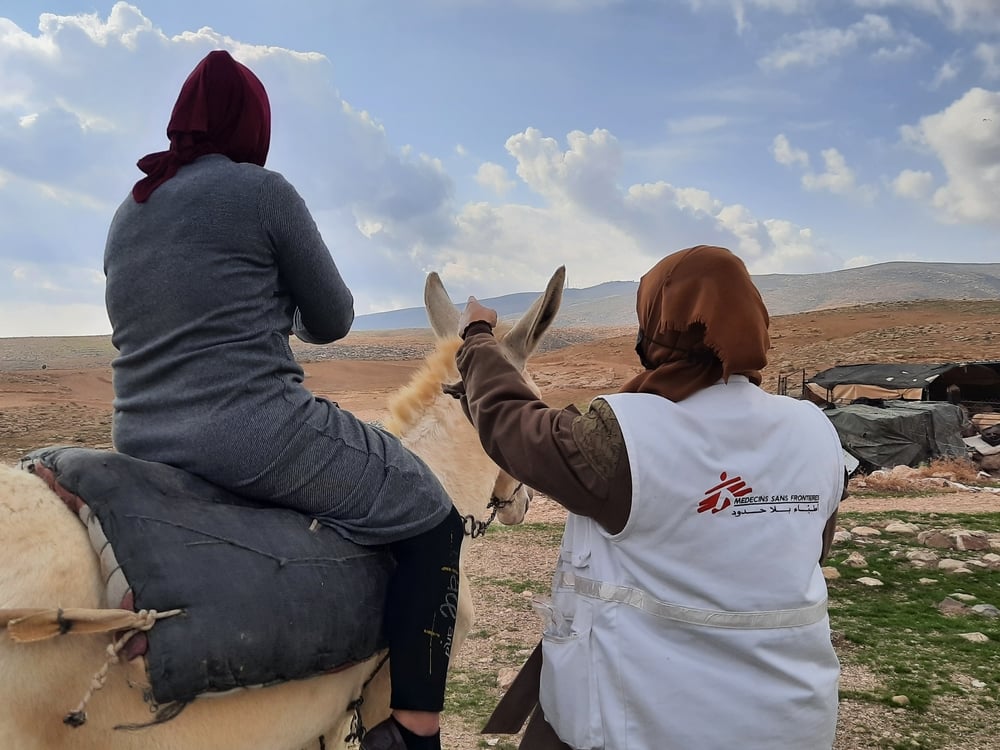Gaza: As the ultimatum given to the population expires, MSF calls on the Israeli authorities to show humanity
Despite Israeli announcements suggesting that there are safe areas for the population trapped in the Gaza Strip, they are in fact exposed to bombardment throughout all the territory, including in the south, where tens of thousands of people have fled following the ultimatum.
As the Israeli army has been bombarding the Gaza Strip without restraint for a week, we are calling for the most elementary humanity to be shown.
The injunction to nearly 1.1 million people to move in a few hours to an already overpopulated territory with precarious access to food, water and healthcare is as absurd as it is intolerable. Our teams are witnessing the fact that drinking water is becoming scarce in the south of the Gaza Strip and the difficulty of obtaining it is adding to the distress of the population.
Doctors Without Borders/Médecins Sans Frontières (MSF) urgently calls for the restoration of sufficient and immediate access to drinking water for the population of the Gaza Strip.
A humanitarian corridor of a few hours decreed today by the Israeli authorities in the north of Gaza has just expired. We are extremely worried about the fate of those who will not be able to move, such as the wounded, the sick and the medical staff, who we fear will be wiped out in view of the statements made by the Israeli military authorities.
MSF is calling for safe zones to remain in the north and for regular ceasefires.
We are also calling for the possibility to flee through the Rafah crossing for those who wish to do so, without prejudice to the right to return. MSF has asked for its Palestinian staff who wish to leave to be evacuated.
About MSF in Palestine
The information about our response, below, is correct as of Nov. 9, 2023.
MSF activities in Gaza are currently very limited. We have extreme difficulties delivering aid and providing healthcare due to the insecurity and the unpredictability of the bombardments. While some of our colleagues decided to move south following the unacceptable evacuation order of north Gaza, some of our other colleagues have remained in northern Gaza and continue to support in lifesaving activities in Al Shifa Hospital as well in Al Nasser hospital in the south. In Al Awda hospital, a team of seven MSF staff is also working in the MSF inpatient department.
We are also supporting local health authorities with donations from our medical stock. Due to the huge and uninterrupted influx of wounded people since the beginning of the current active conflict, Al Shifa Hospital, the main surgical facility in the Gaza strip, was on the brink of a complete shortage of essential medicines. In response, we recently were finally able to make a large donation of medical stock, including medicines and medical equipment to Al Shifa hospital.
Our staff are working hard on preparing medical and humanitarian supplies to be sent to Gaza when safe access will be guaranteed and open, and we’ll send in emergency teams if and when we’re able to.
MSF is committed to supporting the people affected by the Israeli heavy bombardments and indiscriminate attacks on Gaza. We stand in solidarity with healthcare workers and patients in Gaza. We want to be able to access people in need of medical care and offer lifesaving humanitarian services, but to do this we need basic guarantees of safety.
The West Bank
MSF’s medical and humanitarian activities in the West Bank have been affected by the escalation of violence and the reinforced movement restrictions that have limited people’s access to essential services, including healthcare. To adapt to the situation, MSF medical teams are providing phone consultations for Palestinian residents and displaced people, and referring patients for medical treatment, mental healthcare and social services. MSF mental health teams are also providing psychological first aid, counselling and psychotherapy, mostly remotely. In the West Bank city of Nablus, MSF teams are continuing to provide local people with mental healthcare.
MSF has donated medical supplies, including surgical kits, to Ahli hospital in Hebron, and first aid kits to community focal points in Beit Ummar, Al-Rashaydeh and to the emergency care centre in Um Al-Khair; and provided support including training for staff in Al Mohtaseb Hospital located in Hebron old city. MSF continues to assess the situation in hospitals across the West Bank.
